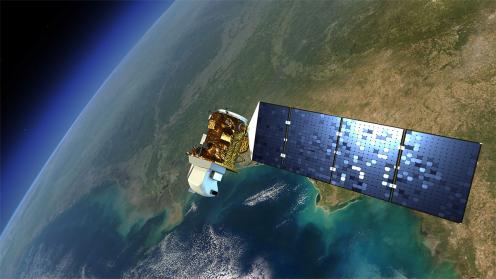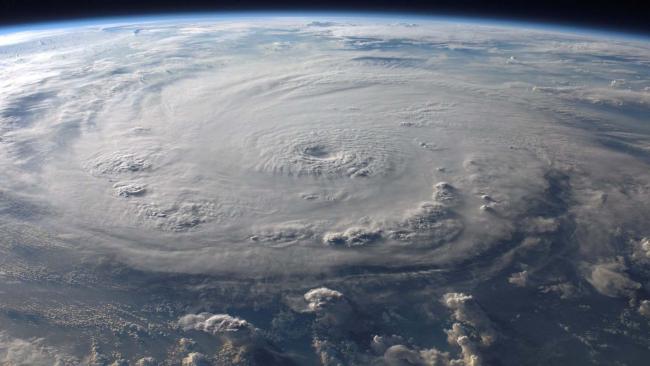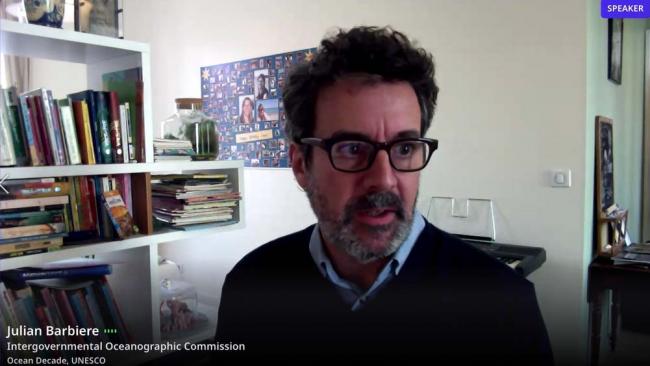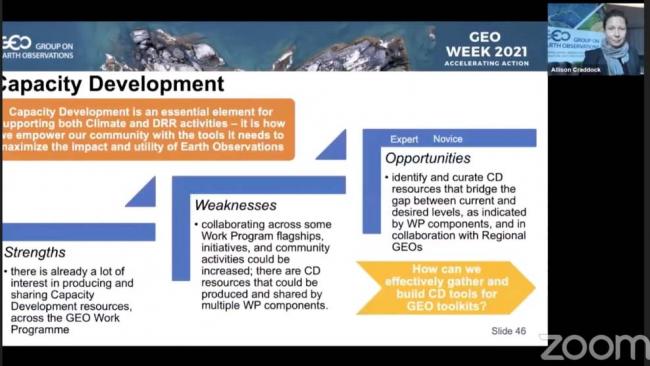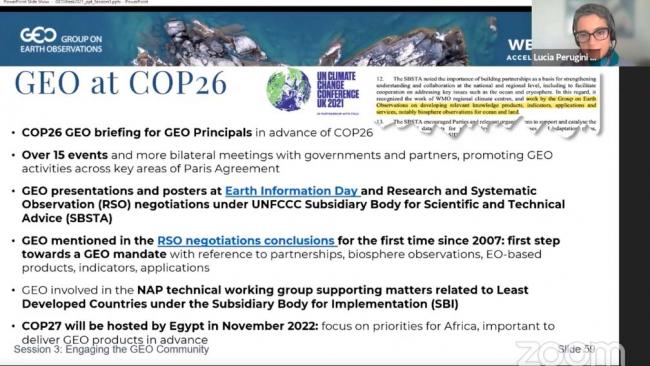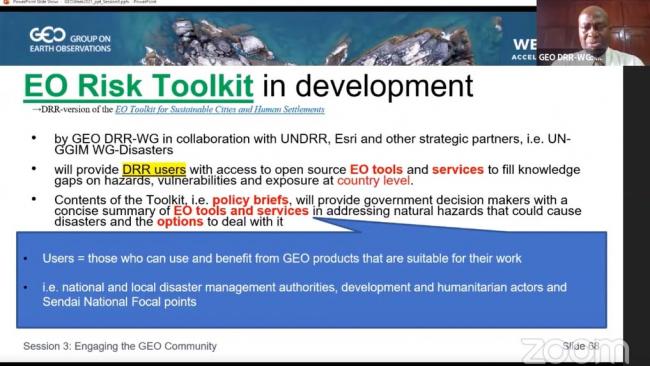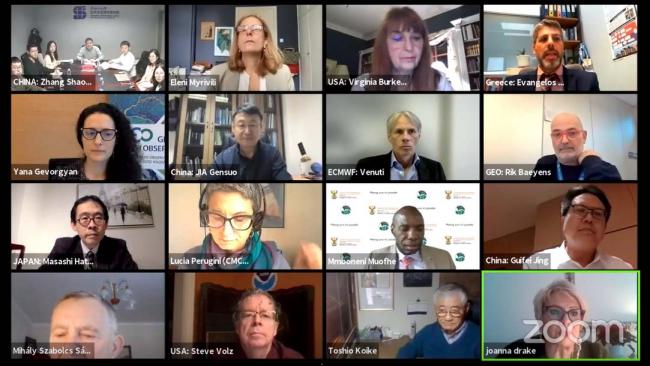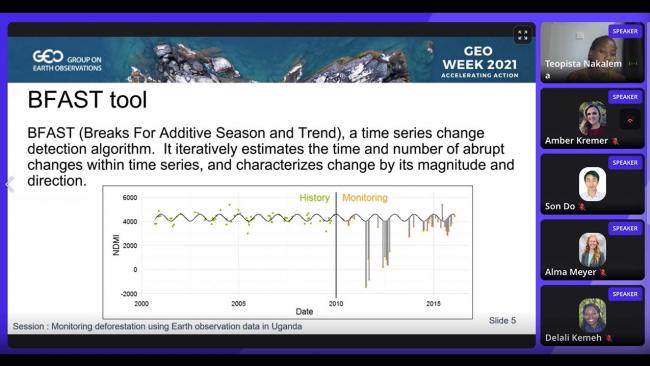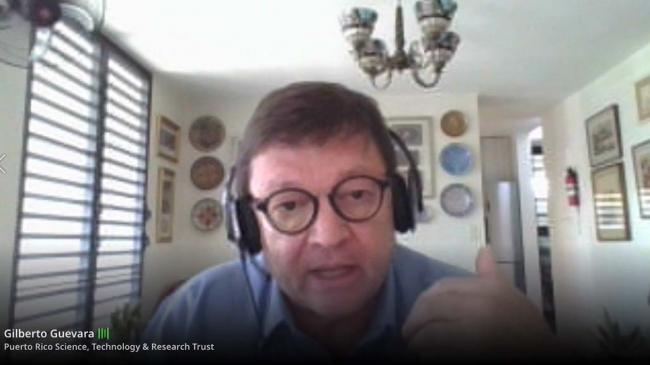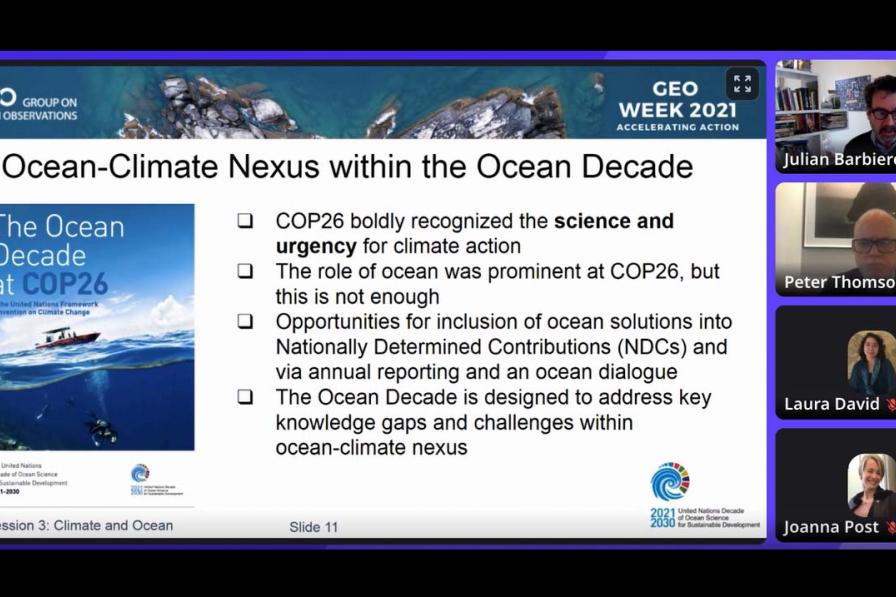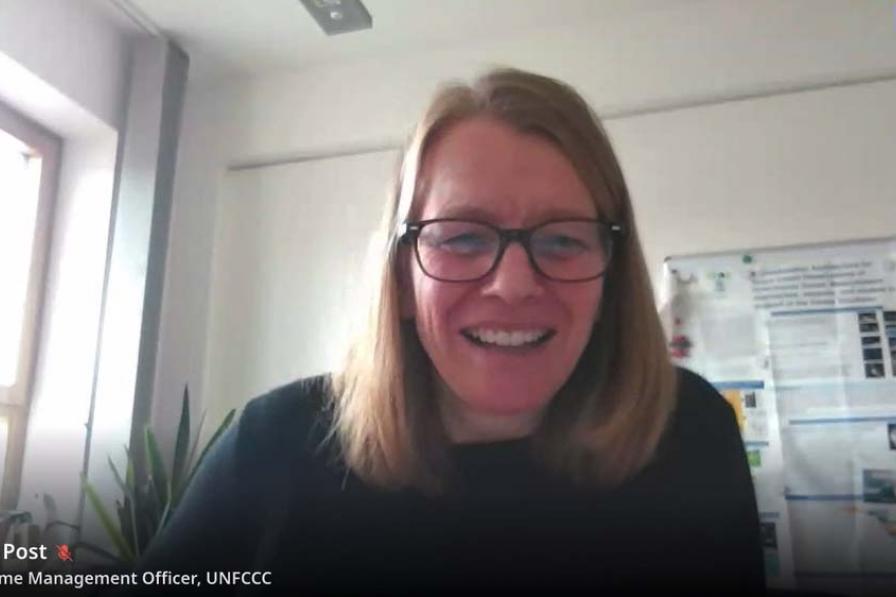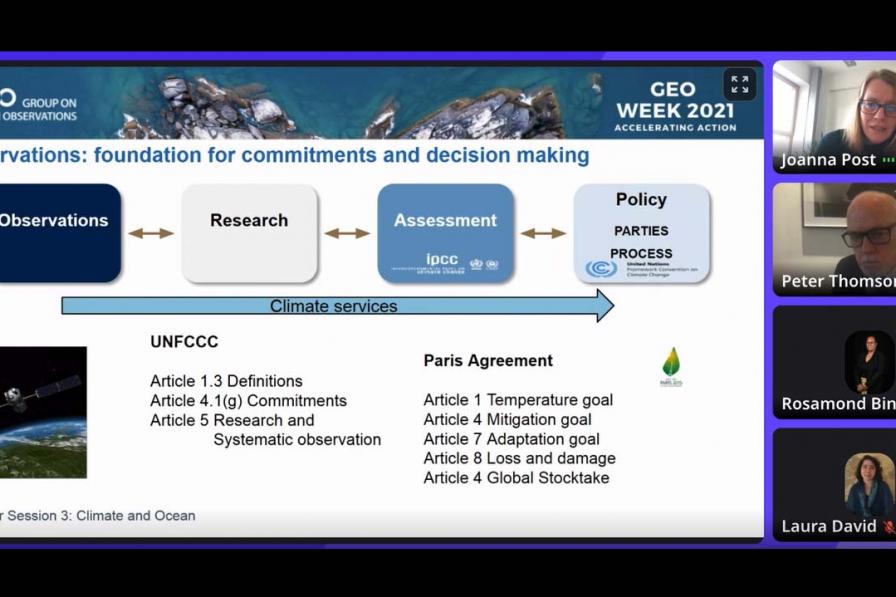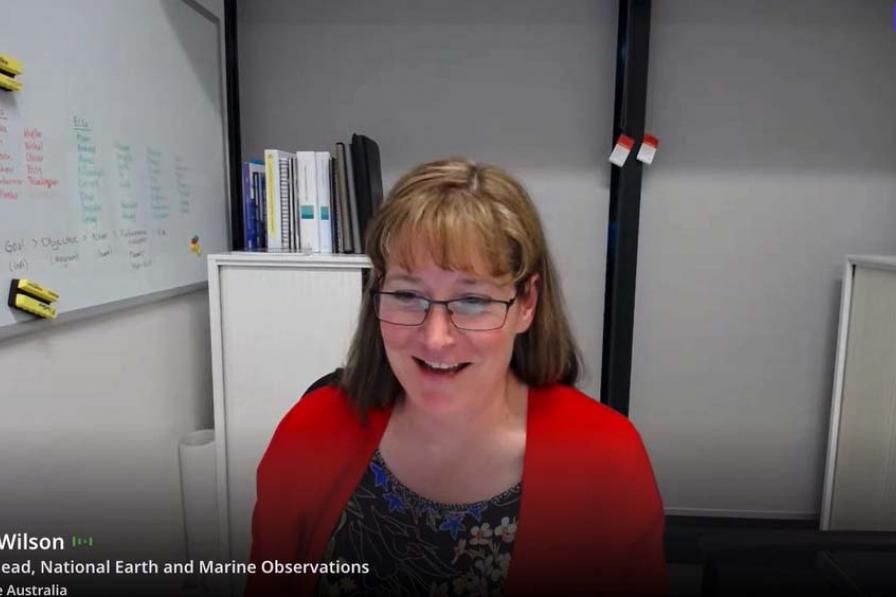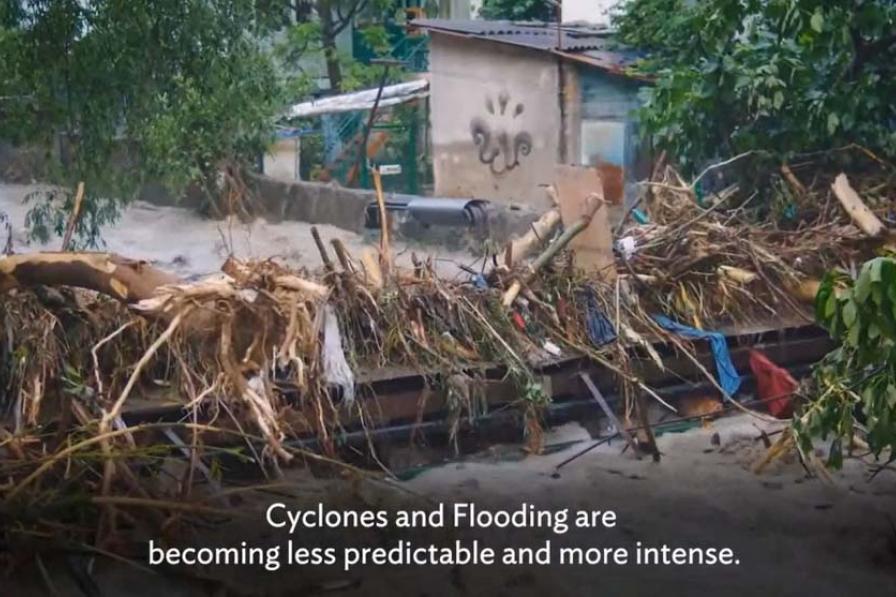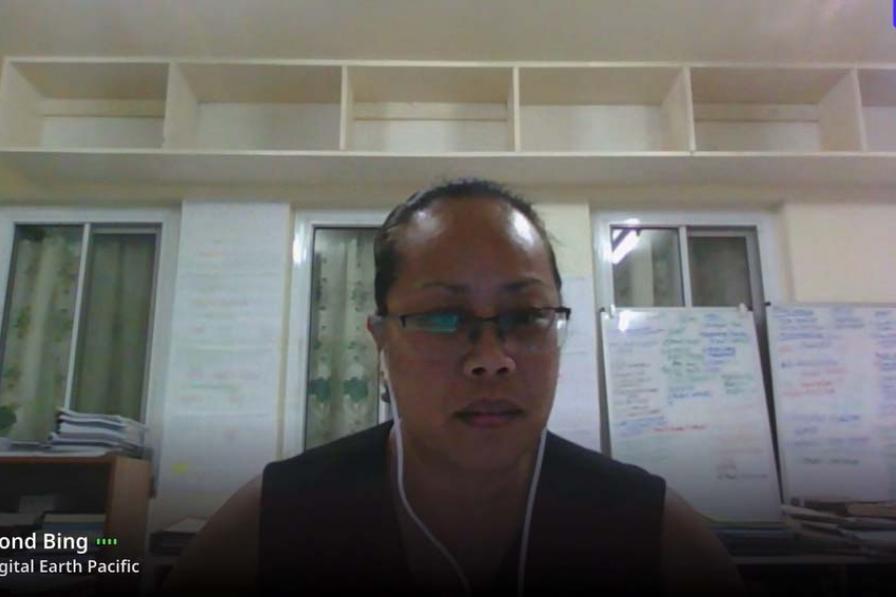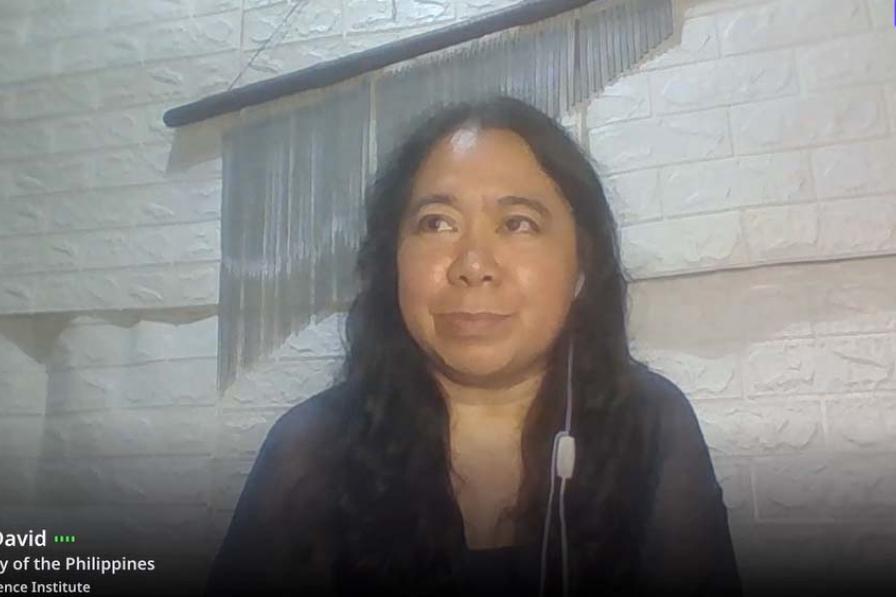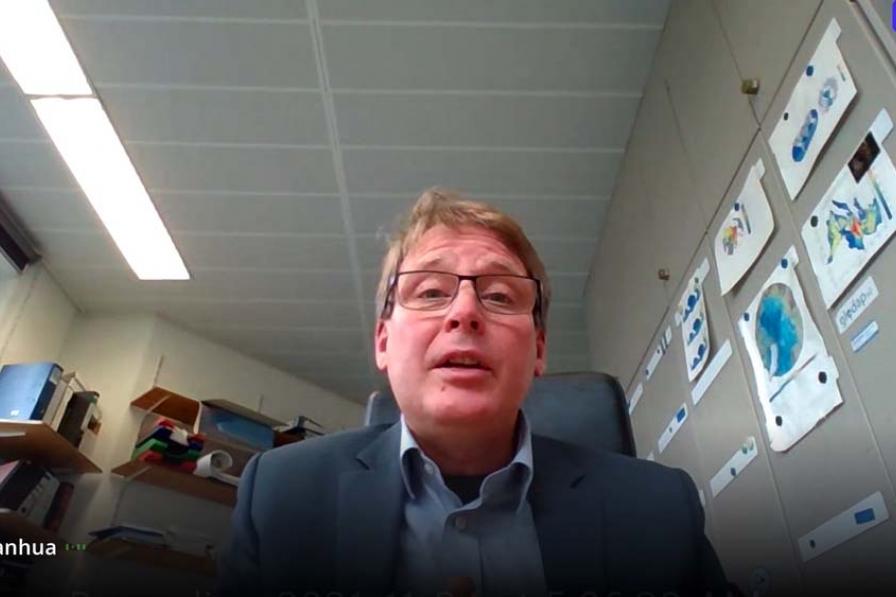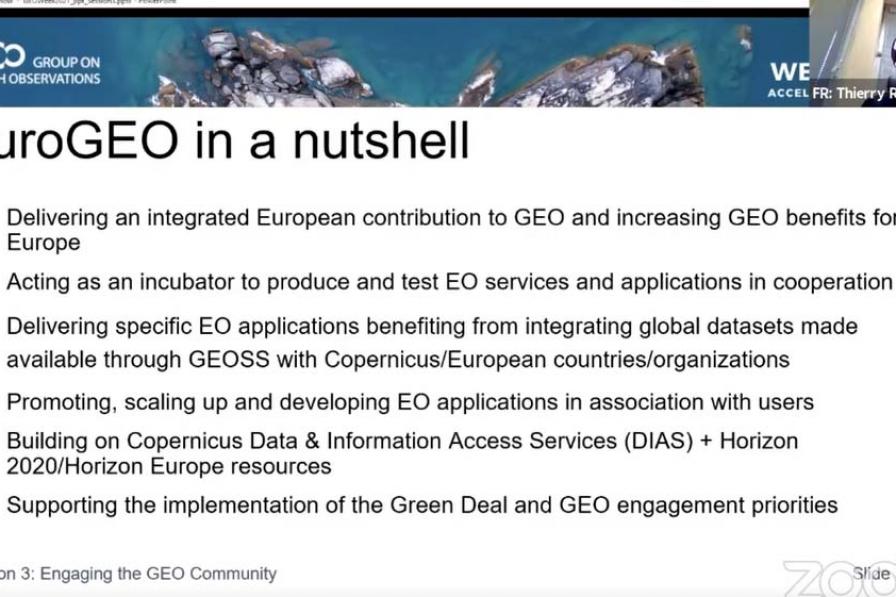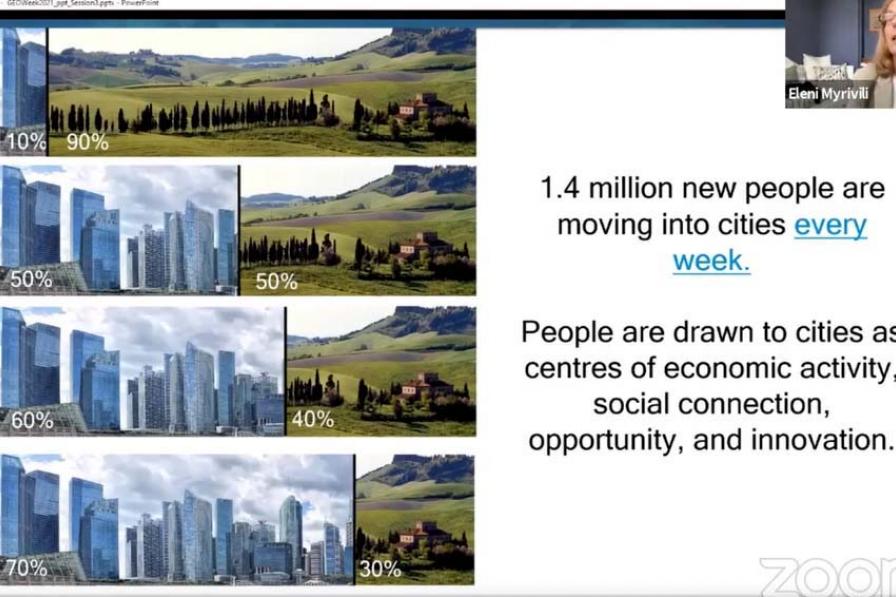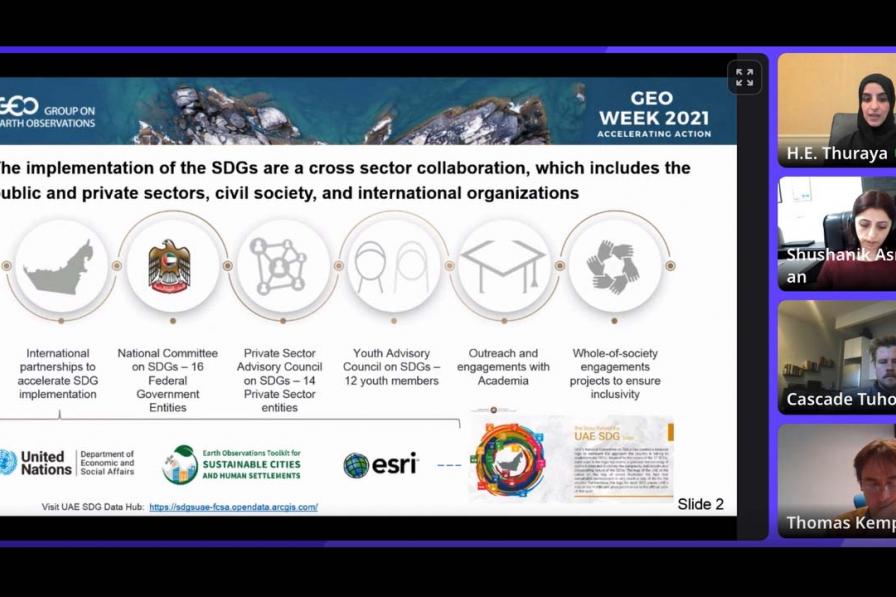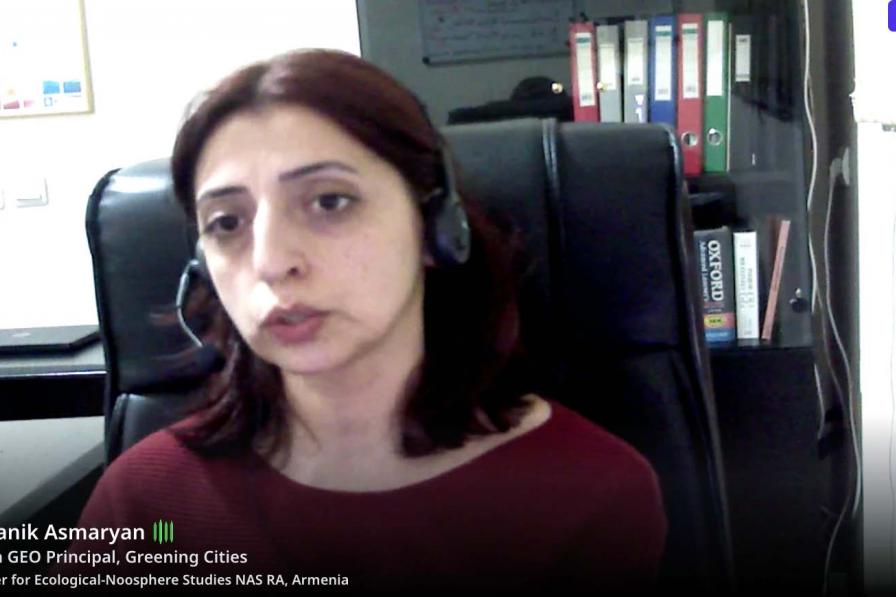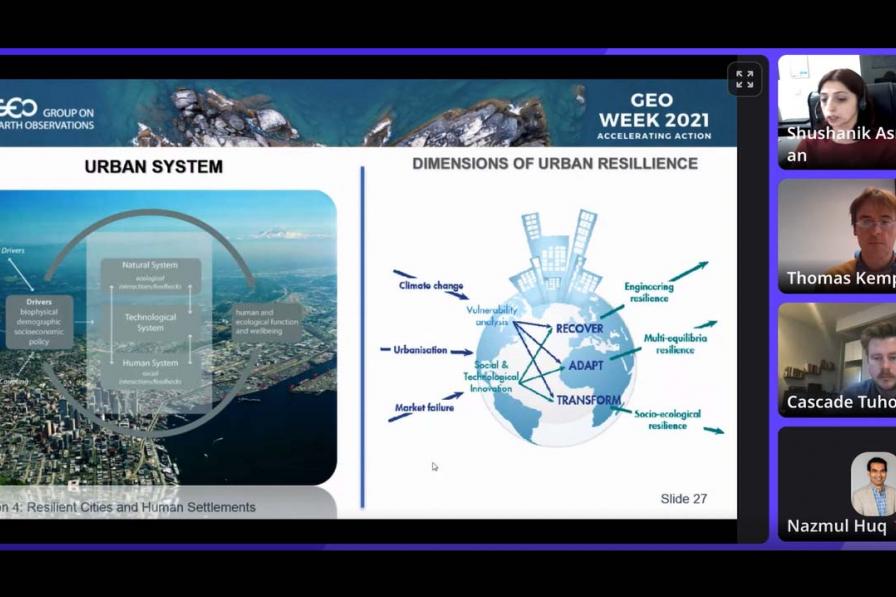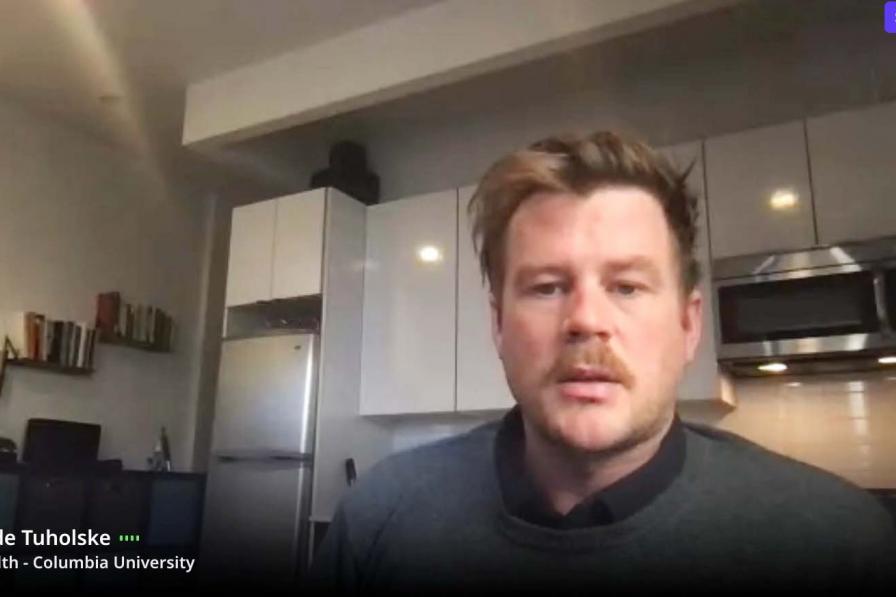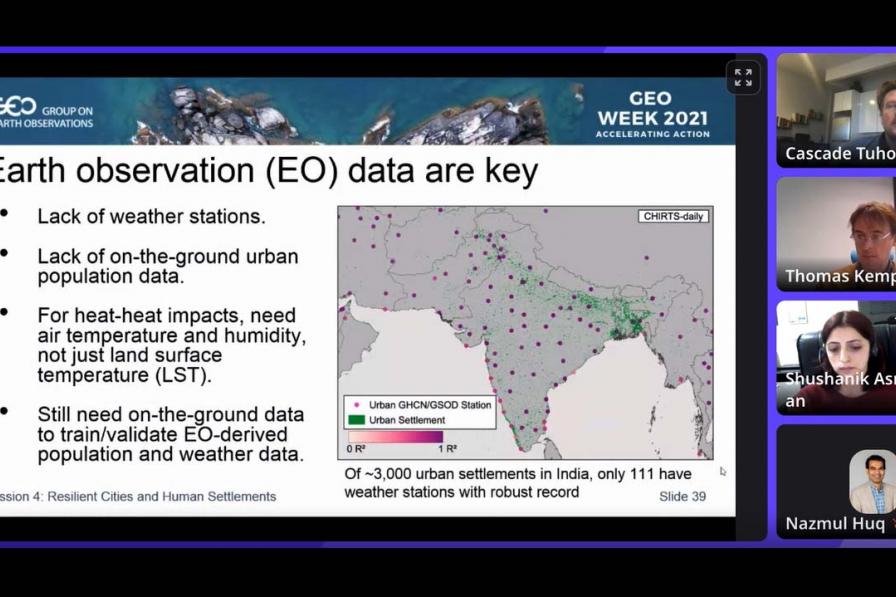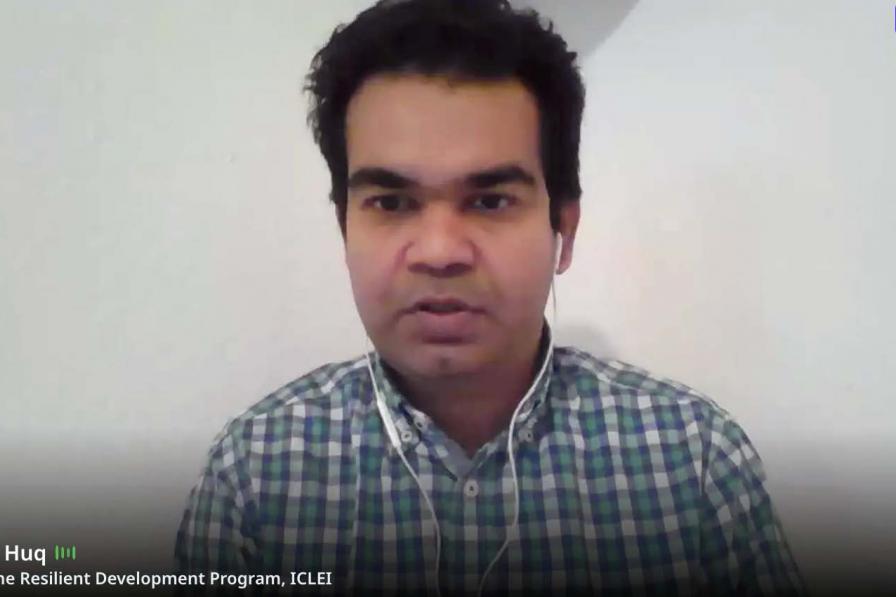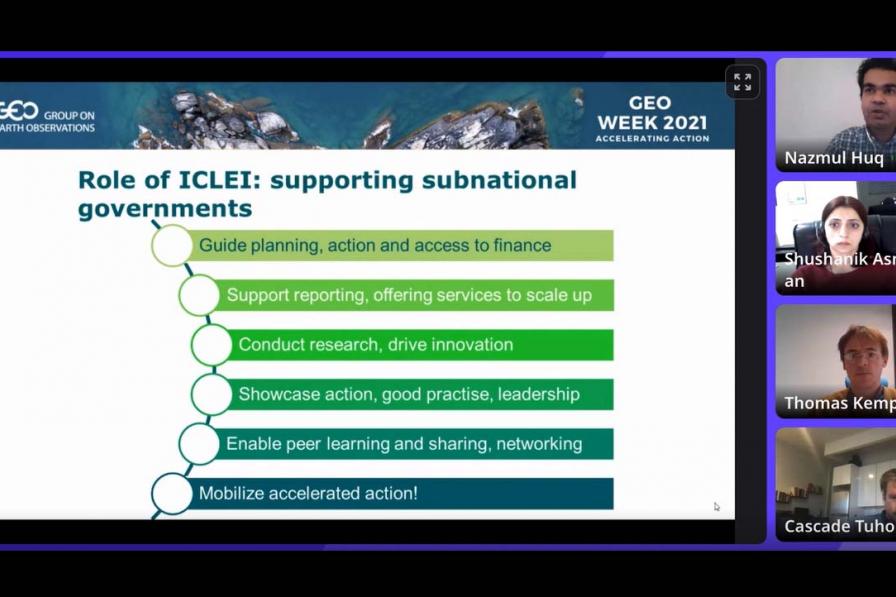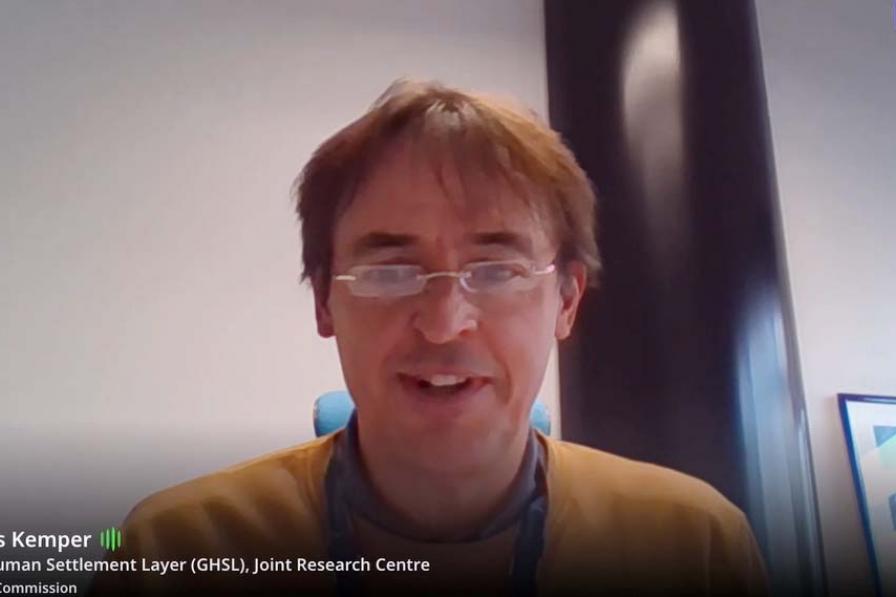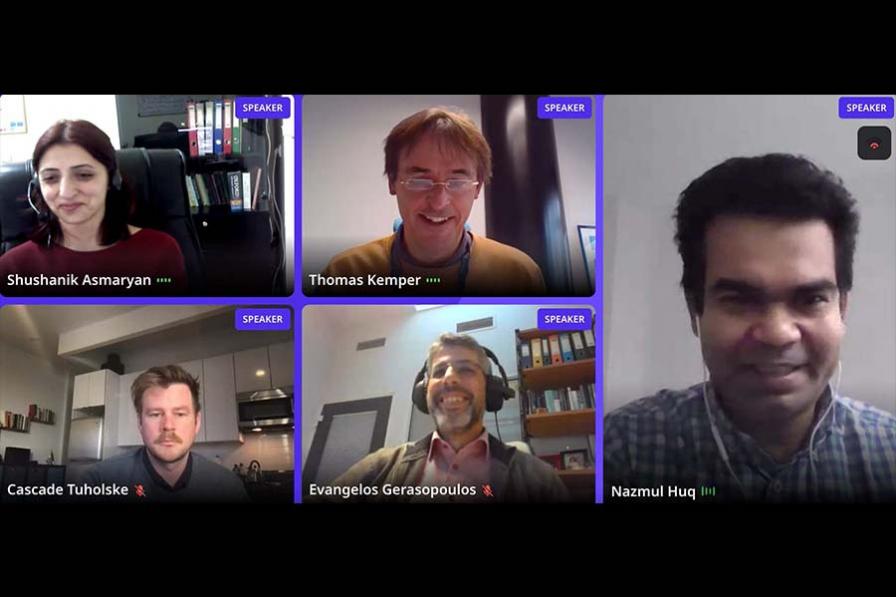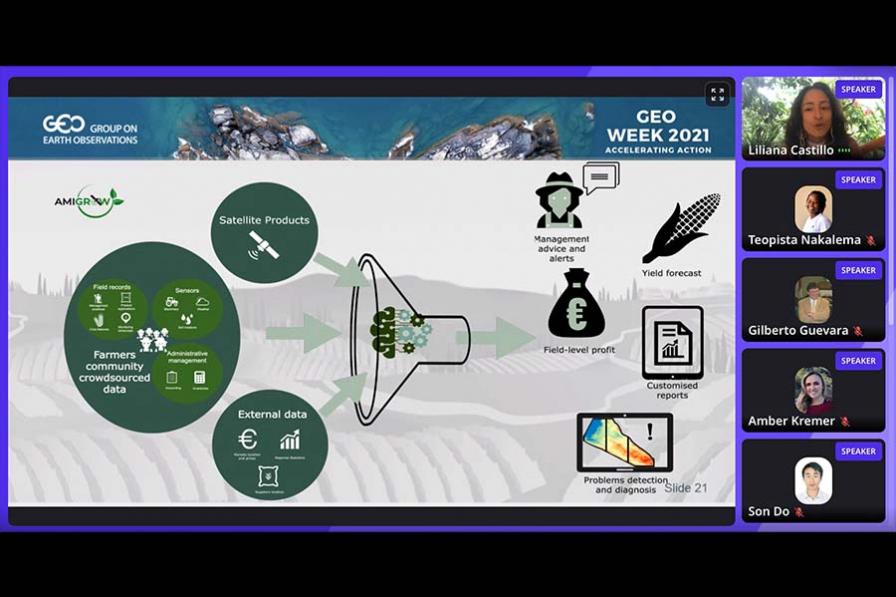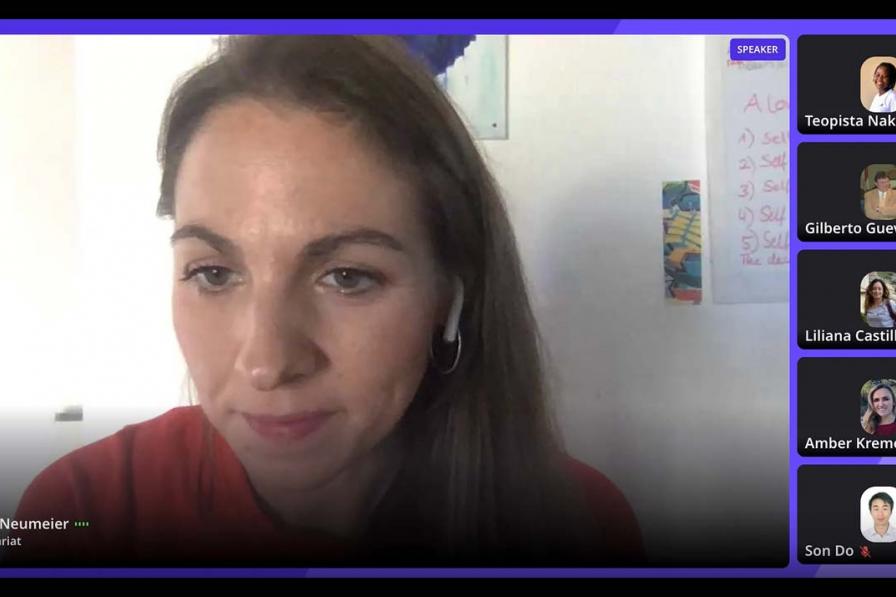GEO Week 2021 continued on Wednesday, with the Seventeenth Plenary Session of the Group on Earth Observations (GEO-17) approving “Resilient Cities and Human Settlements” as GEO’s fourth engagement priority, driven by the New Urban Agenda. It joins GEO’s other engagement priorities - the UN 2030 Agenda for Sustainable Development, the Paris Agreement on climate change, and the Sendai Framework for Disaster Risk Reduction (DRR). The Youth Track also continued deliberations on establishing a Youth Community of Practice within GEO.
The day started with a session on the ocean-climate nexus. Pointing to the need for trillions of dollars to secure the ocean, Peter Thomson, United Nations Secretary-General's Special Envoy for the Ocean, affirmed that “only through accurate and coordinated global observations will we obtain the science we need for the ocean we want.”
Julian Barbière, Intergovernmental Oceanographic Commission of the UN Educational, Scientific and Cultural Organization (IOC UNESCO), underlined that consideration of the ocean-climate nexus can help identify opportunities for including ocean solutions in Nationally Determined Contributions (NDCs).
Participants subsequently gathered in a plenary session on “Engaging the GEO Community.” Representatives of four regional GEOs - AfriGEO, AmeriGEO, AOGEO and EuroGEO - presented their work on, inter alia, land degradation neutrality, natural capital accounting, water resilience, and climate change. They highlighted collaboration with stakeholders and organizations within their various regions, some using a results, impact and value approach.
Participants heard presentations from GEO’s working groups on notable outcomes and key plans for GEO’s work on climate action, DRR, and capacity development. Allison Craddock, Co-Chair, GEO Capacity Development Working Group, presented the results of the ongoing cross-working group mapping of the GEO Work Programme. She reported that almost half of GEO Work Programme activities focus on the three GEO engagement priorities: the Paris Agreement, the Sendai Framework, and the UN 2030 Agenda for Sustainable Development.
Lucia Perugini, Co-Chair, GEO Climate Change Working Group, reported on GEO’s participation at the Glasgow Climate Change Conference and noted that for the first time since 2007, GEO was mentioned in the negotiations on research and systematic observation. She added that this is a first step towards a GEO mandate, with reference to partnerships, biosphere observations, Earth observations-related products, indicators and applications.
Kene Onukwube, Co-Chair, GEO DRR Working Group, discussed the Earth observations risk toolkit, which is being developed in collaboration with the United Nations Office for DRR (UNDRR), Esri and others, to provide data on hazards, vulnerability, and exposure to disasters.
Evangelos Gerasopoulos, GEO Urban Resilience Subgroup, introduced the New Urban Agenda, explaining that by 2050, 68% of the global population will live in cities. He said the GEO strategy includes: engaging cities and stakeholders to understand needs; communicating what GEO has to offer in the urban area; and supporting communities and countries to understand the value of Earth observations for human settlements. Participants approved “Resilient Cities and Human Settlements” as GEO’s fourth engagement priority driven by the New Urban Agenda.
Following the approval of the fourth engagement priority, participants gathered in a session on the topic. Graham Alabaster, Chief, Geneva Office, UN-Habitat, provided an overview of his organization’s work on cities, highlighting synergies with the New Urban Agenda, the Sustainable Development Goals and GEO’s work. He identified the Earth Observations Toolkit for Sustainable Cities and Human Settlements as an example of collaboration between UN-Habitat, GEO and the Earth Observations for the SDGs (EO4SDG) initiative from the GEO Work Programme.
Youth Track
Teopista Nakalema, Food and Agriculture Organization of the UN (FAO), discussed the use of Earth observations data to monitor deforestation in Uganda, using satellite tools such as Landsat, Sentinel 2, and data from the NICFI programme. Noting limited youth involvement in the Earth observations sector, she identified lack of capacity as a major reason for this. Nakalema called for capacity building, including through the GEO network, as well as the provision of youth networking opportunities.
This was followed by an open discussion moderated by Gilberto Guevara, Puerto Rico Science, Technology & Research Trust, focusing on establishment of a Youth Community of Practice within GEO. Participants suggested:
- conducting human-centered design studies to determine how people access Earth observations and better understand the opportunities and challenges with accessing and using these data and services;
- using social media to highlight opportunities for youth within GEO;
- connecting the community of practice with GEO’s thematic activities;
- leveraging on existing networks with active youth constituencies;
- involving youth in organizing events to bring in innovative ideas;
- tapping into mentorship from the GEO community to build capacity in the Youth Community of Practice; and
- ensuring the Community of Practice is driven by youth.
Steven Ramage, Chief Engagement Officer, GEO Secretariat, suggested that bringing the existing geospatial youth communities, notably young women, under a single Earth observations youth banner via GEO could be very powerful and helpful for everyone. Yana Gevorgyan, Director, GEO Secretariat, highlighted the existence of opportunities for youth to learn and share experiences and knowledge around the world. She called for promoting linkages beyond the GEO community.
To receive free coverage of global environmental events delivered to your inbox, subscribe to the ENB Update newsletter.
Selected Images
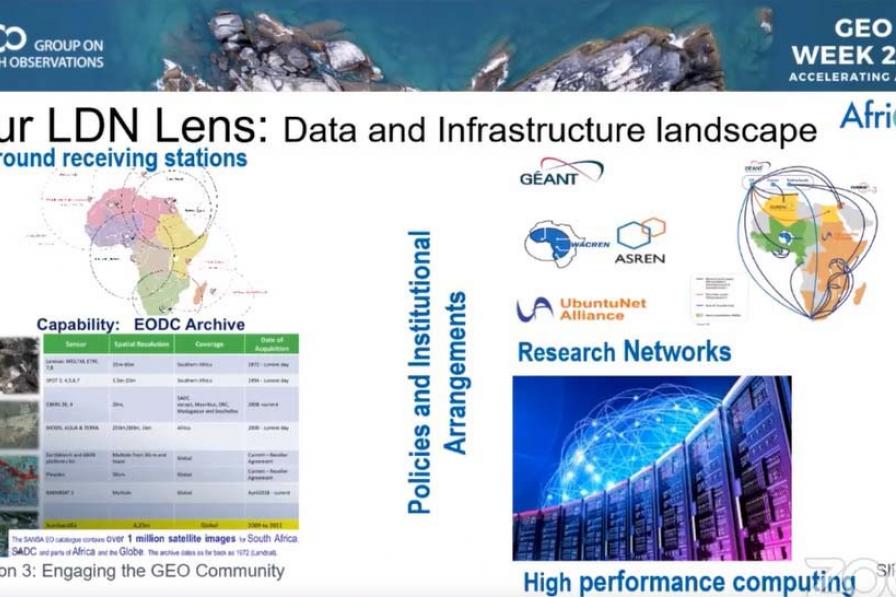
A slide from the presentation by Phoebe Oduor, Regional Centre for Mapping of Resources for Development
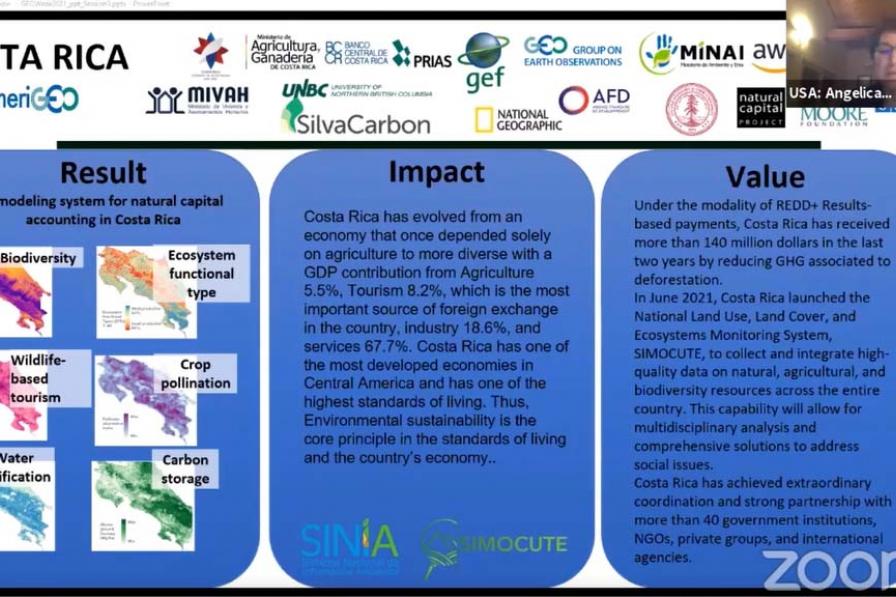
A slide from the presentation made by Angelica Gutierrez, Co-Chair, Regional GEO in the Americas (AmeriGEO)
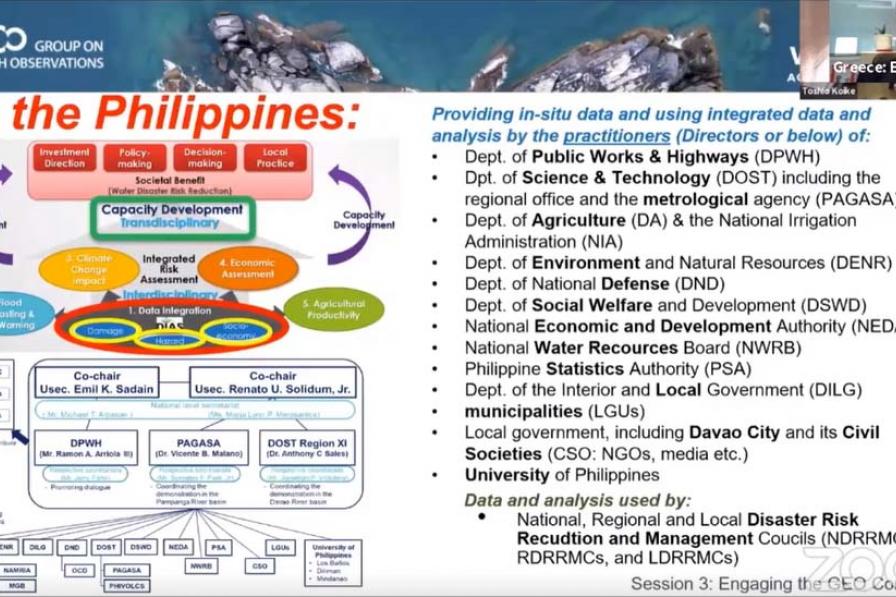
A slide from the presentation by Toshio Koike, Executive Director, International Centre for Water Hazard and Risk Management
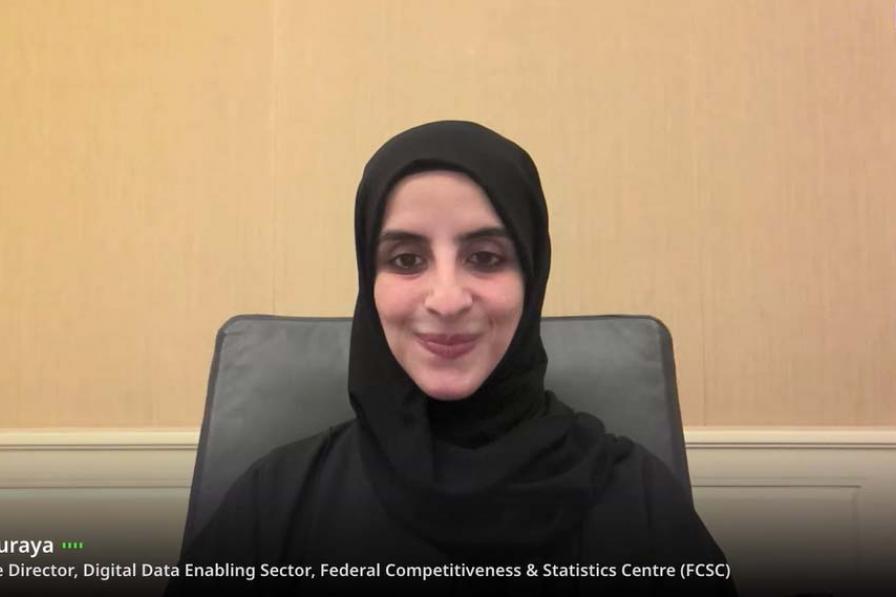
Thuraya Mohammed Al-Hashimi, Executive Director, Digital Data Enabling Sector, Federal Competitiveness and Statistics Centre, United Arab Emirates
